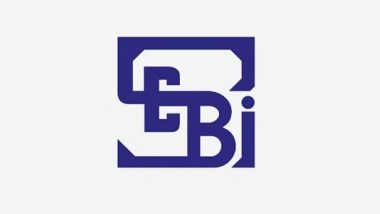Mumbai, February 24: If you invest in mutual funds or hold demat accounts, significant changes are coming to the nomination process starting March 1, 2025. The Securities and Exchange Board of India (SEBI) has introduced revised rules aimed at improving transparency and reducing the number of unclaimed assets in the securities market. These new rules will impact how investors nominate beneficiaries and transfer assets. The revised framework mandates detailed nominee information and ensures a streamlined asset transfer process. LIC Mutual Fund Launches Multi Asset Allocation Fund To Achieve Long-Term Capital Appreciation.
Investors must comply with the updated guidelines to avoid complications in the future. With the new rules in place, investors will have the option to nominate up to 10 individuals, simplifying the transfer of assets and reducing the chances of disputes. Additionally, changes have been made to address the specific needs of incapacitated investors, offering them more control over their accounts. Let's check the key rule changes that you need to know to ensure a seamless experience when the new guidelines come into effect. SEBI Cracks Whip on Finfluencer Asmita Patel, Seizes INR 53.67 Crore From Global School of Trading.
Key Rule Changes in Nomination Process for Mutual Funds and Demat Accounts:
-
Up to 10 Nominees Allowed - Investors can now nominate up to 10 individuals in mutual fund folios and demat accounts, with the option to allocate specific percentages to each nominee.
-
Mandatory Nomination for Single Holders - All single-holder accounts must have a nominee to prevent assets from becoming unclaimed. Opting out requires a formal declaration.
-
Detailed Nominee Information Required - Investors must provide nominee details, including PAN, last four digits of Aadhaar, or driving license number, along with contact information and relationship to the investor.
-
Simplified Asset Transfer After Death - Only two documents are required for asset transmission: a self-attested death certificate and an updated KYC of the nominee. No affidavits, indemnities, or additional attestations will be needed.
-
Joint Account Survivorship Rule - Assets in joint accounts will automatically transfer to the surviving holders without requiring KYC updates or extra documentation.
-
Nominee Flexibility After Transmission - Nominees can either continue as joint holders or open separate individual accounts for their respective portions.
-
Enhanced Online & Offline Nomination Submission - Investors can submit nominations digitally via Aadhaar-based e-signatures or physically with a signed form. Acknowledgment receipts will be provided.
-
Special Provisions for Incapacitated Investors - Investors with disabilities can authorize a nominee to manage their accounts, specifying the amount or percentage of assets they can withdraw. Verification will be done in person by an official.
-
Stricter Monitoring of Unclaimed Assets - Accounts with unclaimed portions will be flagged for additional due diligence, with periodic reports submitted to regulatory bodies.
-
Regulated Transfer of Assets to Legal Heirs - Nominees can transfer assets to legal heirs if required but must submit a declaration to initiate the process.
With this, SEBI has made the nomination submission process more flexible, allowing for both online and offline submissions. Investors can now submit their nominations through a digital platform with Aadhaar-based e-signatures or by visiting a physical office. Regulated entities will maintain records for up to eight years after asset transmission, ensuring transparency and easy access to important documentation. With these comprehensive changes, the new guidelines aim to enhance investor protection, reduce the likelihood of disputes, and streamline the process of managing and transferring assets.
(The above story first appeared on LatestLY on Feb 24, 2025 08:44 AM IST. For more news and updates on politics, world, sports, entertainment and lifestyle, log on to our website latestly.com).













 Quickly
Quickly




















